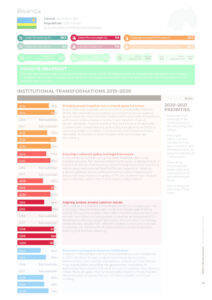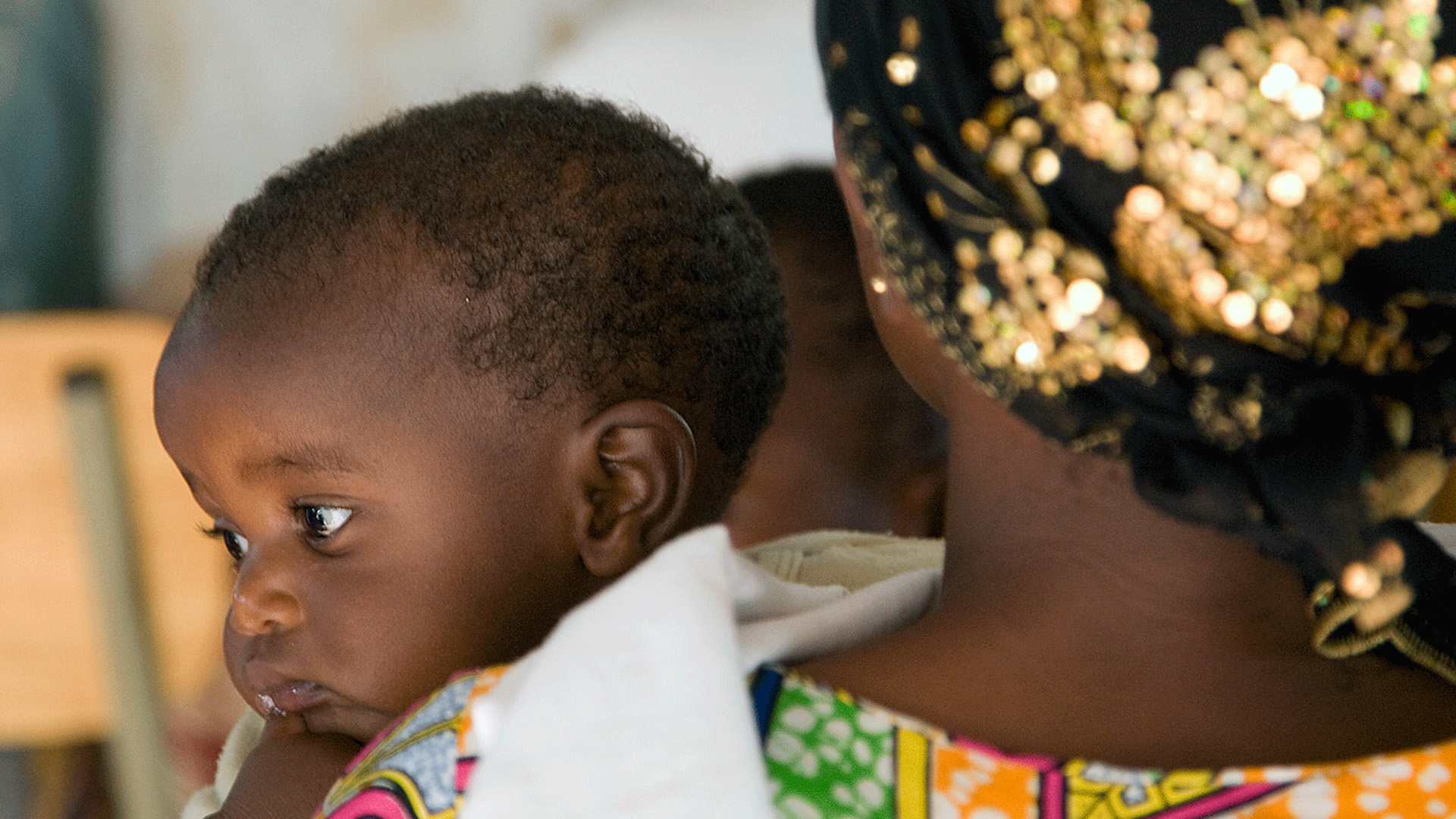Nutrition situation
Under five stunting (%)
38.3
Under five overweight (%)
7.9
Anaemia in women 15-49 years (%)
22.3
Under five wasting (%)
2.3
Low birth weight (%)
7.9
0 to 5-month-old exclusive breastfeeding (%)
86.9
Adolescent overweight (%)
Male: 4.9
/ Female: 16.7
Adult overweight (%)
Male: 15.6
/ Female: 33.5
Adult obesity (%)
Male: 1.9
/ Female: 9.3
Adult diabetes (%)
Male: 4.3
/ Female: 4.5
COVID-19 snapshot
Rwanda has worked hard to reduce the prevalence of COVID-19 infections and to mitigate the socioeconomic impacts of lockdown and other measures slowing down economic activity. Nutrition has been significantly integrated into the national response plan.
Institutional transformations 2019-2020
Bringing people together into a shared space for action
A study on drivers of stunting and the public expenditure review will inform the proposed budget tracking and tagging system for nutrition both at national and local levels. There are existing efforts to estimate, consolidate, track and report financing for nutrition at national and local levels, such as review of PPAN targets, agency and LGU reports, and MELLPI Pro. Provinces that held workshops increased investments for nutrition by 5 to 10 per cent. A system is needed for monitoring investments.Ensuring a coherent policy and legal framework
A new national nutrition policy has been finalised, after a very inclusive process. The national school health policy is being revised. A board is in charge of developing and enforcing food safety standards, and an approved national food fortification regulation. Work on a draft legislation for the ratification of the Code of Marketing of Breastmilk Substitutes is ongoing. A ”Fill the Nutrient Gap“ analysis was conducted, and its March 2019 report widely shared.Aligning actions around common results
The national early childhood development (ECD) strategic plan has a Common Results Framework, which is in the process of being costed. The systems in place that collect nutrition data are not multisectoral, but efforts are being made to develop an integrated ECD dashboard (with a prototype developed) that will allow monitoring across sectors. Results from different studies, surveys and national screenings are shared with all stakeholders, to improve decisionmaking and nutrition planning.Financial tracking and resource mobilisation
Analyses of the budget and nutrition expenditure were conducted in 2020. Nutrition budget analysis results have been widely disseminated, with nutrition expenditure analysis yet to be shared. Most stakeholders, including the government, have plans for addressing financial shortfalls and are able to mobilise more funding where there are gaps. Most funds are disbursed in a timely manner. However, some programmes are not able to predict multi-year funding.2020-2021 Priorities
- Ensuring a full scale-up of the ”child scorecard for a stunting free village“.
- Putting in place a district competition on good nutrition and WASH practices, to prevent and reduce malnutrition.
- Promoting the increased production and consumption of animal-sourced foods.
- Intensifying the planting of fruit trees.
Download

